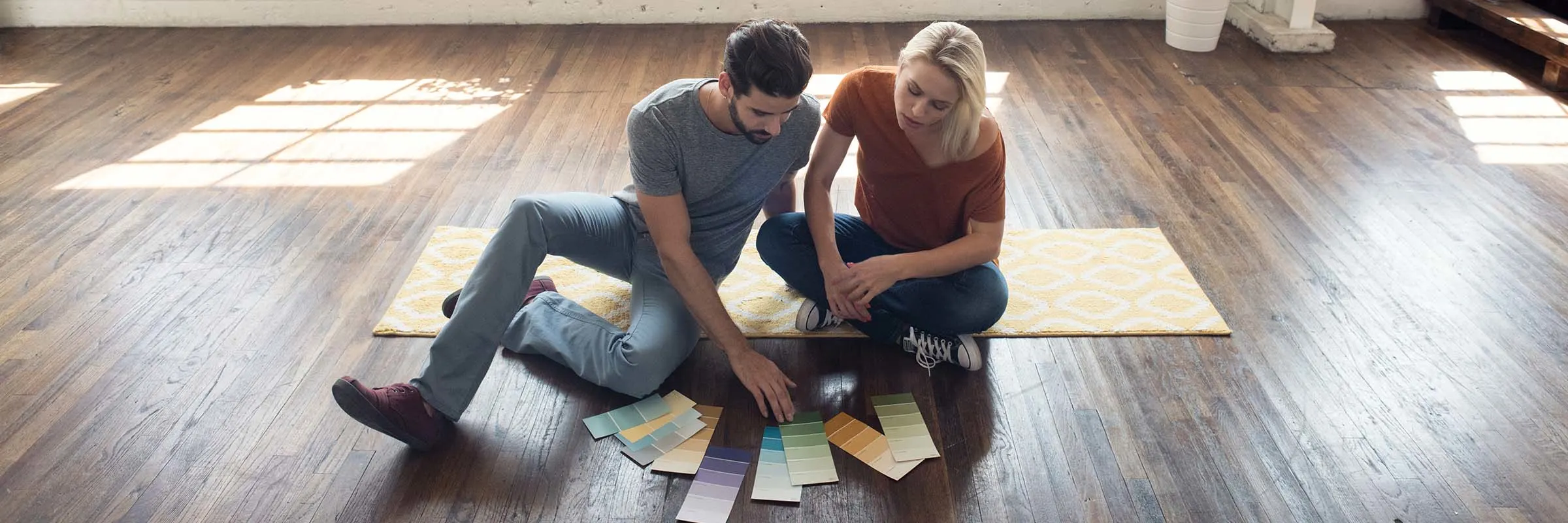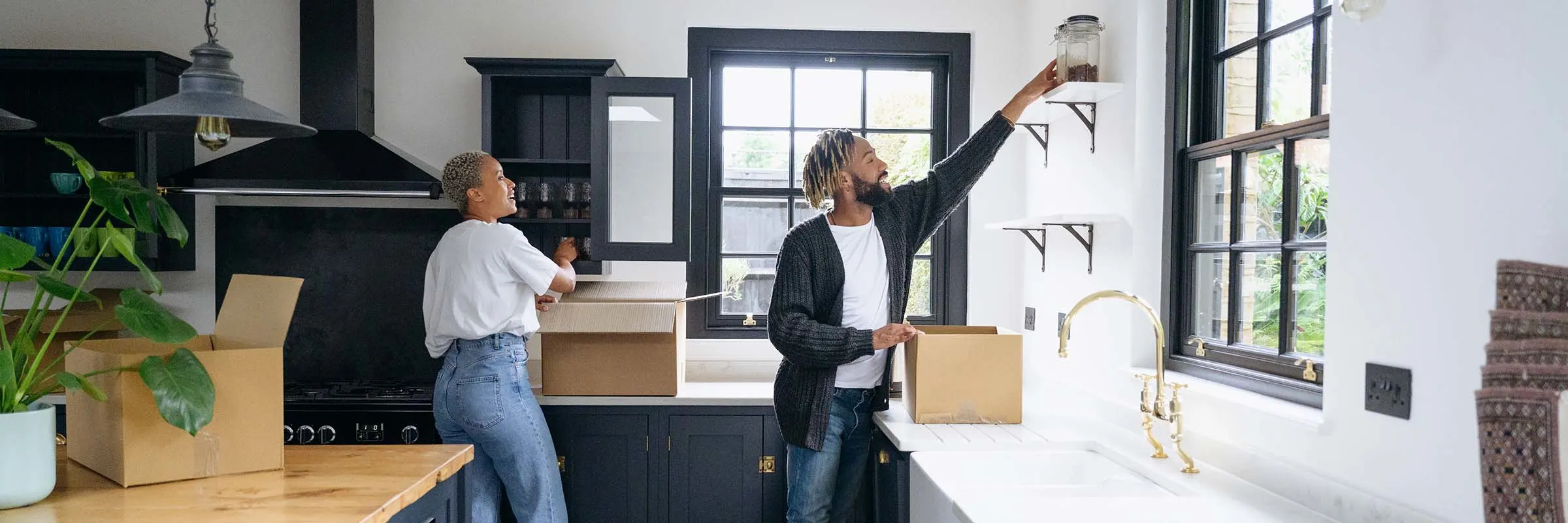Buying a house with a friend may be an option you're considering if you're ready to buy a house but it seems out of reach financially on your own. In recent years, more and more people are buying homes with someone they're not in a relationship with. According to a 2023 Zillow report, most buyers (62%) purchased their home with at least one other person – and of those people, nearly a third said they co-bought with a friend or relative.
If you're thinking about buying your first home, a vacation home or even a rental property with a friend, relative or partner, it's important to fully understand the ins and outs of co-buying before jumping in.
What is a co-ownership mortgage?
A co-ownership mortgage or joint mortgage is a mortgage loan that's signed by two or more people (whether friends, couples or otherwise). Each person on the mortgage is responsible for the borrowed money and has an ownership share in the property that's associated with it.
Take quiz: Find which mortgage works for you.
Co-ownership agreements
Before getting a mortgage together, you may want to work out a few legalities regarding the title to the home. Setting up a co-ownership agreement could save you time and headaches when buying with a friend. Two common options on how to hold the title include tenancy in common and joint tenancy.
Tenancy in common
You can own a home with friends as tenants in common, which means each person owns part of the home — though not necessarily equal shares. So, say you buy a home with three friends, but you make the majority of the down payment. You might structure a tenancy in common (TIC) agreement so that you own 40% of the home and your three friends each own 20%.
With tenancy in common, you can sell your ownership stake at any time, and you don't need your friends' approval first. If you sell your share of the property to someone else, they assume responsibility for this part of the mortgage. Or if a tenant in common passes away, then their ownership share is passed on to their heirs.
Joint tenancy
You could opt for joint tenancy in which all joint tenants in a property own it equally. In this scenario, if you want to sell your share of the property, you must get the other owners' approval first. And if a joint tenant passes away, their ownership stake gets passed on to the remaining joint tenants.
Other co-ownership agreement considerations
Your co-ownership agreement could also cover:
How you’ll divide up the monthly mortgage payment and other expenses
How you’ll handle shared financial obligations if one of you were to lose your job or get sick and be unable to work temporarily
Rules for things like having guests over or pets
How specific you make this agreement is up to you and your co-owners. You can create a co-ownership agreement yourselves or hire a real estate attorney to help.
Affording a mortgage by yourself might be difficult, but it could be easier when splitting the cost of buying a home with friends.
How to buy a house with a friend
Review your finances to determine what each of you can afford to pay toward buying a home. This includes the mortgage payment, maintenance and utilities, as well as the down payment and closing costs.
A lender will require both you and the co-borrower(s) to meet the requirements set for joint mortgage approval. That includes credit score, income requirements and debt-to-income ratio guidelines. Shop around and talk with several lenders, such as Ally Home, to learn about mortgage options and decide which type of loan is best for your personal circumstances.
It could also be helpful to get pre-approved for a mortgage (this lets sellers know you’re ready to buy and able to do so) before you start seriously searching for homes.
The pros and cons of buying property with friends
Before you get too far into the joint homebuying process, here are a few things to consider.
Advantages of buying a home with a friend
Shared mortgage payments. Affording a mortgage by yourself might be difficult, but it could be easier when splitting the cost of buying a home with friends.
Lower down payment. Buying a home with someone else means you’re not shouldering the entire down payment yourself.
Begin building equity. The longer you live in the home and make on-time mortgage payments, the more home equity you can build.
Drawbacks of buying a home with a friend
Barriers to approval. Lenders usually look at the lowest credit score when determining the interest rate on your loan.
Less control. When you share ownership, neither of you has complete control over what happens to the property.
No guarantees. Signing your name to a mortgage loan makes you responsible for the debt. If your friend fails to keep up their end of the bargain, you may be left responsible for the full mortgage payment. Missed payments could also potentially hurt your credit.
Is co-buying right for you?
Co-buying a home could beat renting if you’re able to save money on housing costs. You may also benefit from being able to share responsibilities for maintenance, repairs and upkeep instead of having to do all of it yourself. On the flip side, you’re counting on someone else to pay their fair share. If you can navigate the potential risks, buying a home with someone else certainly could be worth exploring — especially if homeownership is a goal for you both.


